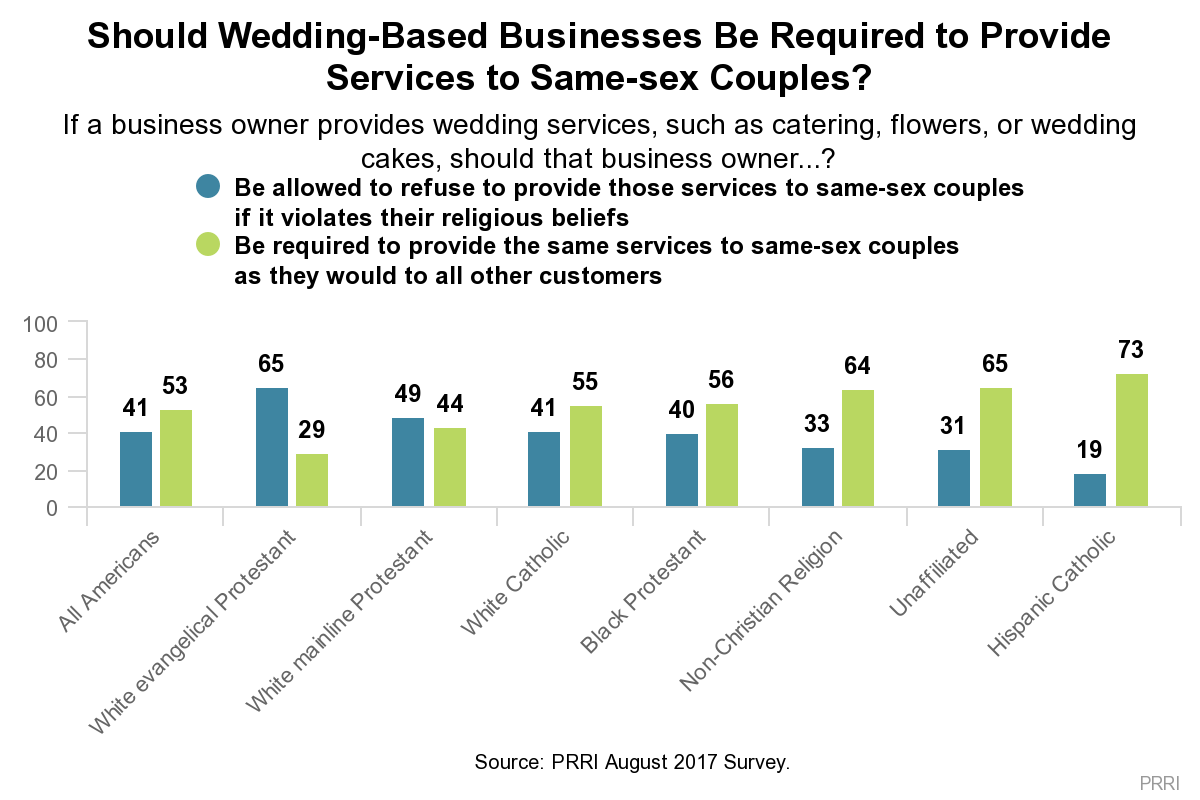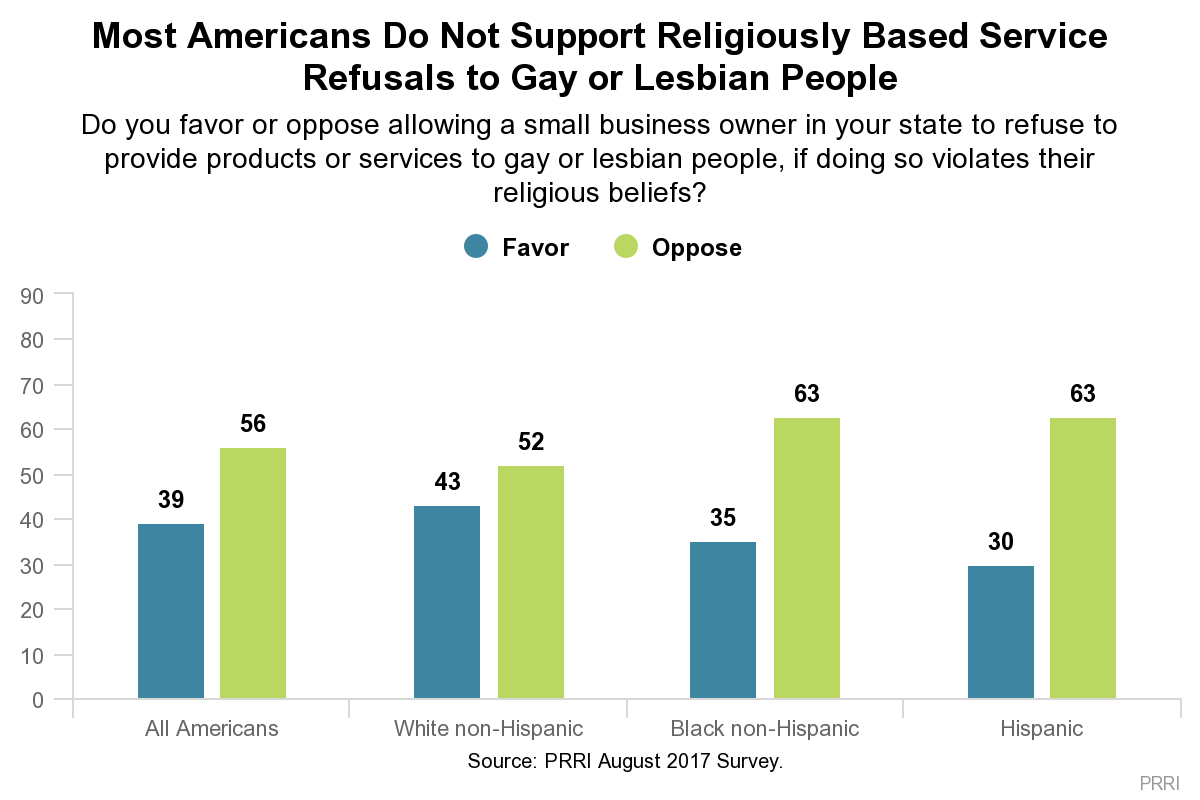With the Supreme Court set to consider the case of Jack Phillips, a Colorado baker who refused to sell a wedding cake to a same-sex couple, it might seem as though religious-based discrimination remains a highly contentious issue across the country. But a new poll suggests that only one group is actively pushing to use “religious freedom” to justify discrimination: white evangelical Protestants.
According to the latest numbers from the Public Religious Research Institute (PRRI), 53 percent of Americans oppose allowing wedding vendors to refuse to serve same-sex couples, with only 41 percent in support.
Along political lines, 67 percent of Republicans support legal anti-gay discrimination, compared to 40 percent of Independents and 24 percent of Democrats. While white Americans are fairly evenly divided on the question, 61 percent of black Americans and 68 percent of Hispanic Americans stand opposed.
White evangelical Protestants are the only major religious group with a majority that supports the idea. Americans of every other religious affiliation overwhelmingly reject the notion that religious beliefs justify wedding vendors’ discrimination.

These findings contradict the message conservatives are trying to send to the Supreme Court. For example, the United States Conference of Catholic Bishops (USCCB), along with a variety of other Catholic organizations, recently filed an amicus brief siding with Phillips. But as was the case when the USCCB was one of the leading national opponents of marriage, it doesn’t actually speak on behalf of what American Catholics themselves believe.
The amicus briefs defending Phillips also attempt to draw a major distinction between discrimination on the basis of sexual orientation and race. As the Ethics and Religious Liberty Commission of the Southern Baptist Convention argued, “While it is true that government has compelling reasons for narrowly circumscribing conduct based on invidious racist beliefs, the same is not true of religious beliefs about traditional marriage.” The fact that even religious people of color are far more likely to oppose religious refusals suggests they aren’t nearly as convinced by the distinction as proponents of that argument claim.
PRRI’s findings when it didn’t limit the question to wedding vendors were even more telling. A larger majority overall opposed religious refusals, and black and Hispanic respondents were far more likely to oppose allowing small businesses to refuse service to gay and lesbian customers because of their religious beliefs.

Incidentally, PRRI also found even higher overall support (72 percent) for LGBT nondiscrimination laws, the very laws that have been used to hold businesses accountable for refusing service to same-sex couples. Support was high across all political demographics, including a majority of Republicans (60 percent), Independents (72 percent), and Democrats (81 percent).
The study’s other findings confirm that, in general, Americans are increasingly supportive of LGBTQ equality:
- A 64 percent majority supports allowing transgender people to serve in the military.
- Half the public opposes laws that force transgender people to use the sex they were assigned at birth instead of according to their gender identity.
- A 66 percent majority supports same-sex marriage, with only 28 percent opposed.
- A 68 percent majority opposes allowing adoption agencies that receive federal funding to refuse to place children with same-sex couples.
If the Supreme Court is convinced to side with Phillips and other anti-gay vendors, it will do so in stark contrast to the American public’s views on these issues and will effectively impose one set of religious beliefs on everybody else.
